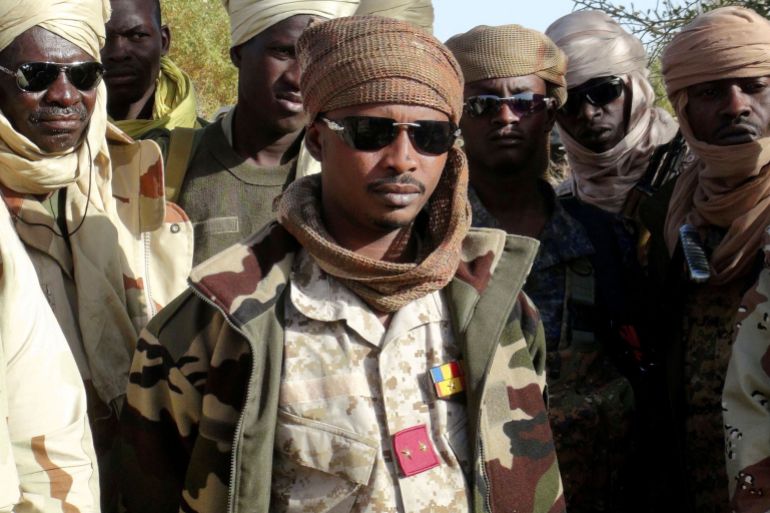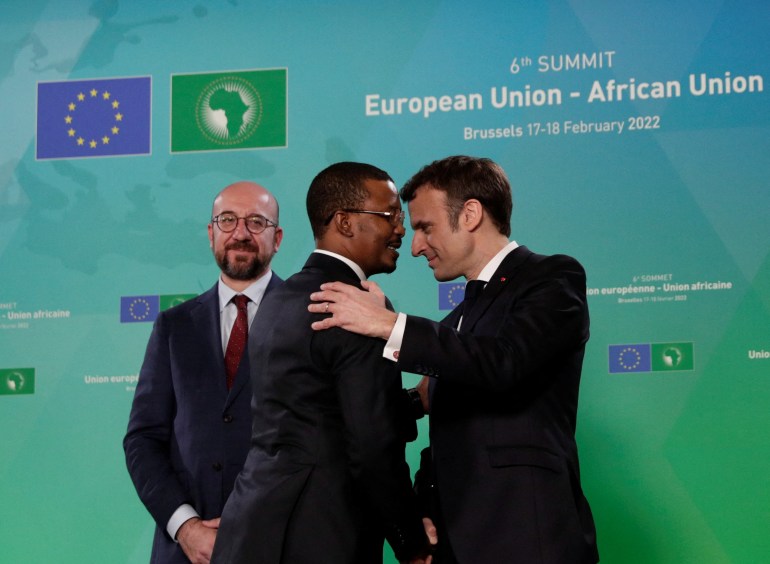Chad military gov’t, armed groups peace talks in Doha on hold | Armed Groups News
Doha, Qatar – A first round of negotiations between Chad’s transitional military council and representatives of armed groups set to kick off in Doha, the Qatari capital, has been delayed by 48 hours.
The talks, which were expected to start on Wednesday, could mark a critical passage in the country’s transition towards elections.
Successful peace talks are seen as a key prelude for a national dialogue to take place in the Chadian capital N’Djamena in May. There, the ruling transitional military council (TMC) is expected to sit with members of civil society to establish a constitutional framework for a transition to civilian governance.
Chad was thrown into turmoil following the death of longtime ruler President Idriss Deby while he was fighting rebels in the country’s north last April. His son, Mahamat Idriss Deby, known as Kaka, was put in charge by the military with the promise of free elections within 18 months.
The Doha negotiations follow a flurry of diplomatic efforts which resulted in rebel groups agreeing to negotiate with the transitional council if certain conditions were met, including the release of prisoners and the return of confiscated assets.
But the talks started on the wrong foot after a planned opening ceremony on Sunday was suspended for 72 hours after representatives of the main armed group, the Front for Change and Concord in Chad (FACT) left the negotiating table.
It was protesting against the replacement, the previous week, of the mediator of the talks, former president Goukouni Weddeye, and the “special technical committee” he chaired.
FACT also asked Qatar to clarify its role, demanding the host country to be a mediator, rather than a facilitator, in order to have guarantees for any commitments resulting from negotiations.
The group also wanted to reduce the number of representatives and relevant groups for the talks to be effective. The latest 48 hours extension was granted on Wednesday for armed groups to agree on who should attend the negotiations.

What is on the agenda?
Three main issues are on the table, said Enrica Picco, Central Africa project director at the International Crisis Group.
One revolves around the combatants’ return to Chad as they have been based mostly in Libya and Sudan.
Another concerns the release of armed groups’ prisoners. In late November, about 300 rebels were pardoned and released in N’Djamena but no FACT leaders were included in the amnesty.
The TMC is also expected to raise questions over a leaked recording of a phone conversation in which the head of the Union of Resistance Forces (URF) rebel group, Timan Erdimi, is heard seeking mercenaries from Russian private military contractor Wagner to remove Deby and the French military presence from the country.
“That call was enough to insinuate some doubt on the sincerity of the transition,” said Picco.

Why are these talks important?
With his iron-fisted rule, the elder Deby had held a leading role, both politically and militarily, in the fight against armed groups in the Lake Chad and wider Sahel region. This turned Chad into a key ally of Western powers. Since 1986, France has had a military presence in the country and its anti-insurgent Operation Barkhane has been based in N’Djamena since launching in 2014.
The country provided 1,400 soldiers to the United Nations mission in Mali (MINUSMA) until it announced its withdrawal last month. In February, it sent a battalion of 1,500 men to sustain the French mission in the tri-border area between Burkina Faso, Mali and Niger.
Picco said stability in Chad was key for the whole region, especially for France amid intensifying anti-French sentiment in the area.
Other analysts also argued that Chad’s military commitments caused the West to turn a blind eye to human rights abuses and corruption within the country, one of the poorest in the world.
Contrary to the chorus of condemnation that followed military power seizures in Burkina Faso, Mali and Guinea-Bissau, Western analysts and observers barely criticised Kaka’s appointment, despite the constitution stating that the head of parliament should have taken over.
The situation has led to mixed feelings in Chad about the possible outcomes of the negotiations.
“All the Chadians hope for a new beginning,” said independent political analyst Abdoulaye Adoum from N’Djamena. “It remains to be seen if negotiators want to be serious and sincere.
“They will discuss, they will sign some resolutions or declarations, but they will find obstacles in executing them,” he said. “We have always been good in writing texts, but not in applying them,” he added.

Pingback: project mancave
Pingback: dtr car detailing
Pingback: เว็บเกมสล็อต
Pingback: 7 slots